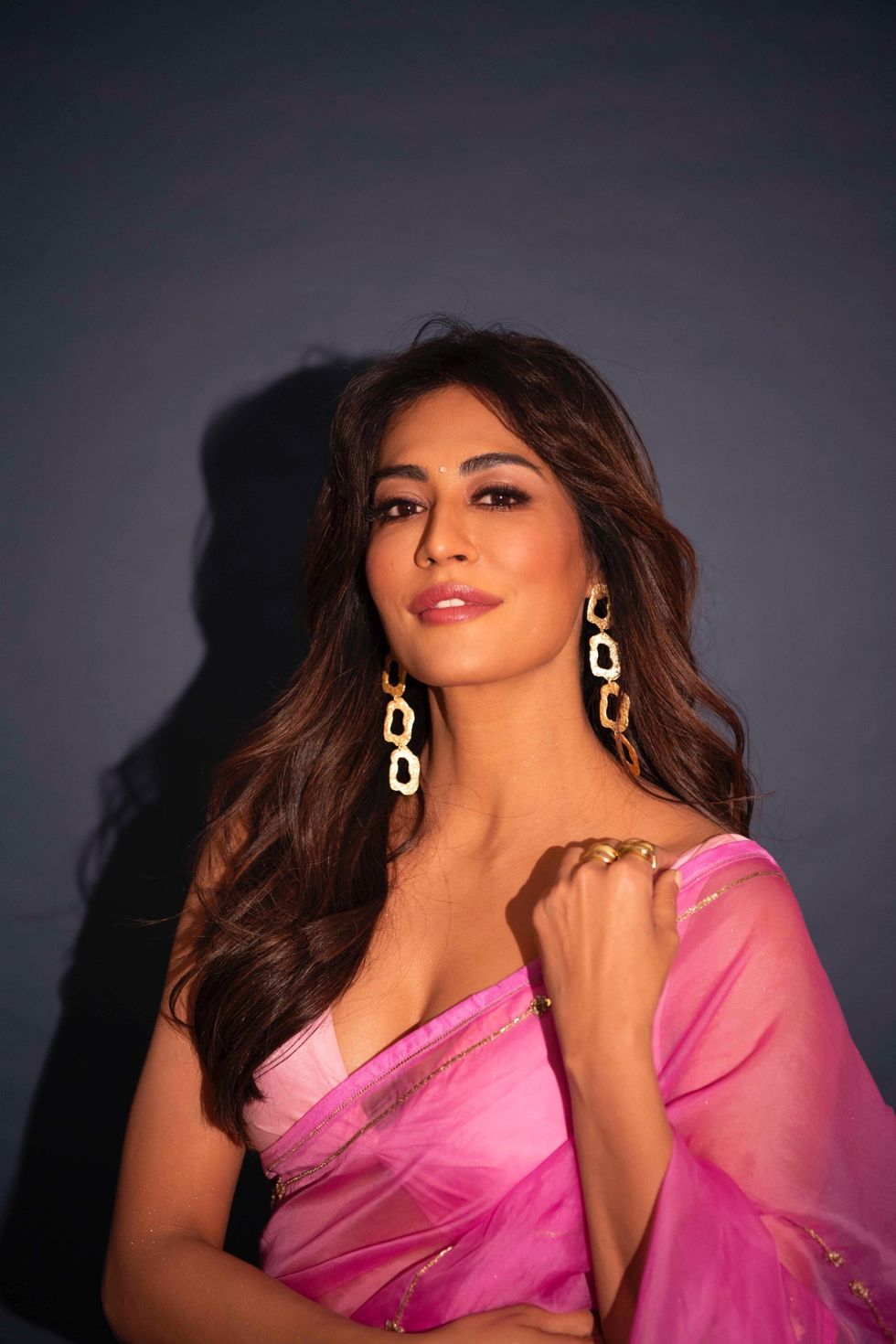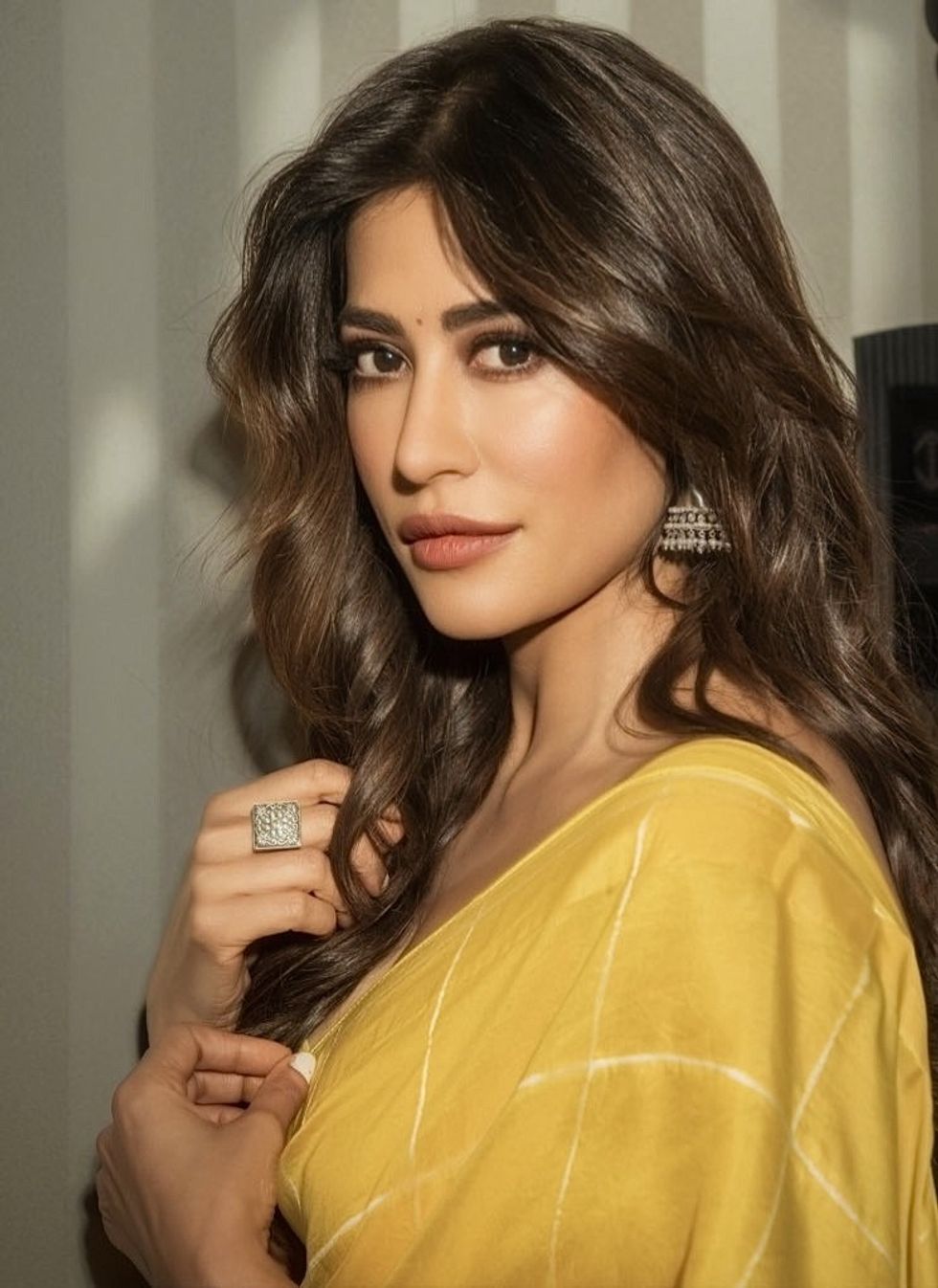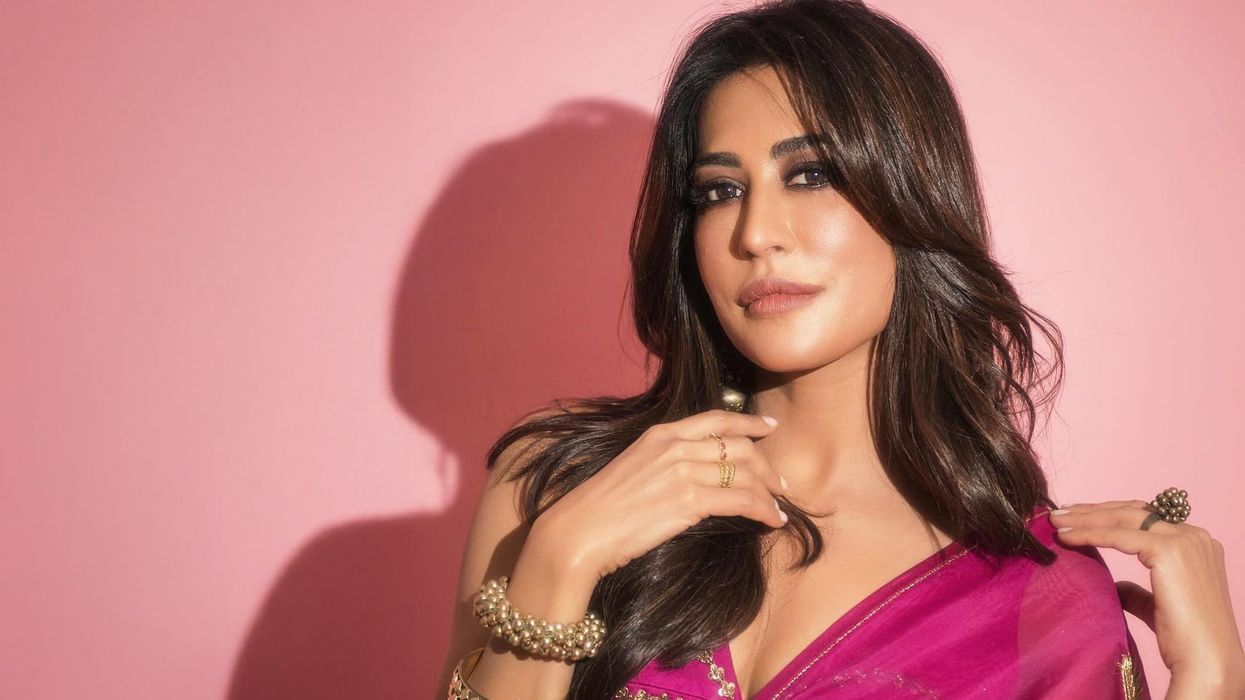Whether taking long breaks or making unpredictable choices, Chitrangda Singh has always followed her own rhythm in a notoriously fast-paced film industry.
The ever-graceful actress adds fresh chapters to her cinematic journey with two dramatically different projects. Just a week ago, she made a splash on the big screen in the mega-budget comedy multistarrer Housefull 5, part of a popular franchise. Next, she will shift gears for Raat Akeli Hai 2 – the dark, layered Netflix sequel to the gripping whodunnit that captivated audiences during lockdown.
Her unconventional path continues with this dual release, which reflects her commitment to varied work. That approach has defined her since making a winning debut with the acclaimed 2005 film Hazaaron Khwaishein Aisi. The top talent remains driven by audience appreciation.
In a wide-ranging interview with Eastern Eye, she discussed her journey, passions beyond acting, dream role, fashion, approach to performance, and advice for young women.

How do you reflect on your acting journey?
I think it has been a very gratifying and exciting journey. I have taken quite a few breaks in between but feel audiences did not forget me or my work. Even when I did less, they still gave a lot of love and respect for what I had done, which for me is such a huge encouragement to keep going. It has been a very interesting life, especially because this was not something I had planned or expected to do.
Tell us about that.
It was this amazing coincidence – how (writer/director) Sudhir (Mishra) found me and I got Hazaaron Khwaishein Aisi. It felt like someone was introducing me to myself, telling me I had a talent I should explore. I am very thankful that audiences have not forgotten me. I am still here, doing exciting work.
What makes you so selective about the projects you take on?
The root cause is simply that when you do not get the kind of work you are looking for, you wait. So, it is not that I have been deliberately choosy. I just tried to pick the best from whatever came my way. Actors are offered all kinds of work. When it was not good enough, I preferred to wait rather than come under pressure to take it. All I can say is, I did not quite get the kind of work I was hoping for.
Looking back, would you have done anything differently?
If I could change something, it would probably be the long breaks I took. Those happened because of certain family commitments, which meant I had to keep going back to another city.
I was not in Mumbai all the time. Staying away – especially that seven-year break early on – meant people did forget me a little, and I had to keep making comebacks. That probably affected my career. I also wish I had stayed more focused and worked harder at times.
You have played a variety of interesting roles. Which is closest to your heart?
The film that is closest to my heart is Inkaar with Arjun Rampal. I feel my character, Maya Luthra, was a special woman. She could be strong and ambitious, and make a place for herself in a man’s world – fight for it. At the same time, she was vulnerable, emotional, and in love. Those are the contrasts we live with. I feel Maya was a beautifully written character and the one I relate to the most.
Which film project challenged you the most?
It is the one I have just completed – Raat Akeli Hai 2 for Netflix with Nawazuddin Siddiqui. It was a tough role, and Honey Trehan is a very demanding director. I had a great time and learnt a lot on set after a long while. Sometimes you get these characters that force you to change your approach. I must thank Honey for that. It was challenging, but I really enjoyed it.
What is the secret to surviving in such a competitive industry?
The secret is doing good work. I have taken long breaks, but people remember you if the work has been strong. They recall your performances and potential. I think that is the only way to survive and build a long shelf life. It is not about visibility, PR, or award shows – those help, but they do not last. Only the work does.

You always have great screen presence, but what is the secret to a great performance?
My understanding is that acting is not about performing, but reacting – emotionally, physically, and truthfully to a situation. That stops you from repeating yourself. In real life, you do not get angry the same way every time because the context is always different. Of course, it depends on the writing too. But if you react with honesty, without overplanning, that is the key to a great performance.
Which genre do you prefer?
I haven’t done much of it, but I love romance and good drama.
Do you have a dream role?
I have said this many times – it would be Umrao Jaan, the character Rekha played in Muzaffar Ali’s film. I find women and dancing girls from that era fascinating. They lived hard lives but were ahead of their time in many ways. They were uninhibited about their sexuality, yet deeply cultured – reading, writing poetry, and of course, dancing.
What are your biggest passions outside work?
I do not get too much time, but I love painting and charcoal sketching. I also enjoy golf and like playing it. I love trekking – I have done a lot of that in Srinagar and Jammu and Kashmir, just walking along rivers and fishing. I wish I had more time for it.
What do you enjoy watching as an audience?
I love romance. I also enjoy thrillers and drama. I especially like courtroom dramas – they are fascinating and very difficult to write well.
You are seen as a symbol of girl power. What advice would you give to women and girls?
Keep working on yourself. Make sure you are financially independent, because that leads to mental and emotional independence. If you cannot support yourself financially and rely on someone else, it becomes the worst kind of dependence – even your thoughts and opinions start relying on them. So, work on yourself, become financially stable, and be your own person.
Any other advice?
This idea of feminism where women try to be men – I do not agree with that. I think women should remain women but work hard for opportunities. Do not look for shortcuts or expect special treatment because you are a woman. Pay your dues and work as hard as any man. That is how you earn it.
Your fashion sense always stands out. What inspires your style?
My style has always been classic and casual chic. I cannot pull off over-the-top looks or heavy bling. I prefer understated and structured outfits. But honestly, I am most comfortable in jeans and a T-shirt. I always go for clean, timeless silhouettes.
If you could master something new, what would it be?
Horse riding. I have been on a horse and can manage a little, but I am not very good. A woman on a horse is so graceful. I would love to learn dressage – it is the most beautiful thing. The other thing is fishing – if I could get better at it, I would enjoy those long treks even more.
Why do you love being an actress?
The most exciting part is getting to play different characters. I love human psychology – I am curious about people and their behaviour. Working on that, picking up nuances, building new characters and becoming someone else is thrilling. And it changes every day. I feel blessed to do such varied work with so many creative people. It is an energy I thrive on.




